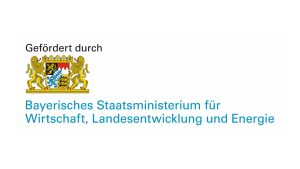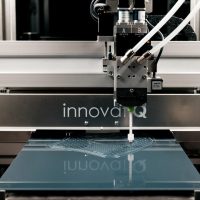Project description
Silicone components are widely used both in industry and in medical technology. The outstanding material properties, such as high crack elongation, temperature resistance or chemical resistance, are largely responsible for this. Particularly in the field of medical technology, patient-specific solutions are also in demand, so that complex additive manufacturing systems for silicone components are also required in combination. These processes are young and difficult to control, since an irreversibly chemically reactive mixture is processed. However, advantages over indirect additive processes, casting into printed molds, exist in both complexity and cost advantages.
The research project deals with the Liquid Additive Manufacturing (LAM) process, through which complex silicone components can be directly additively manufactured. Within the process, two starting components are mixed to form an uncured silicone rubber. The rubber is then applied in web form to a build platform, where it crosslinks additively. The speed of crosslinking is influenced by the thermal energy applied.
The complex process is to be analyzed and modeled within the research project. Subsequently, the setting of process parameters can be automated and adapted to the component, which reduces the manual preparation time and prevents misprints.


